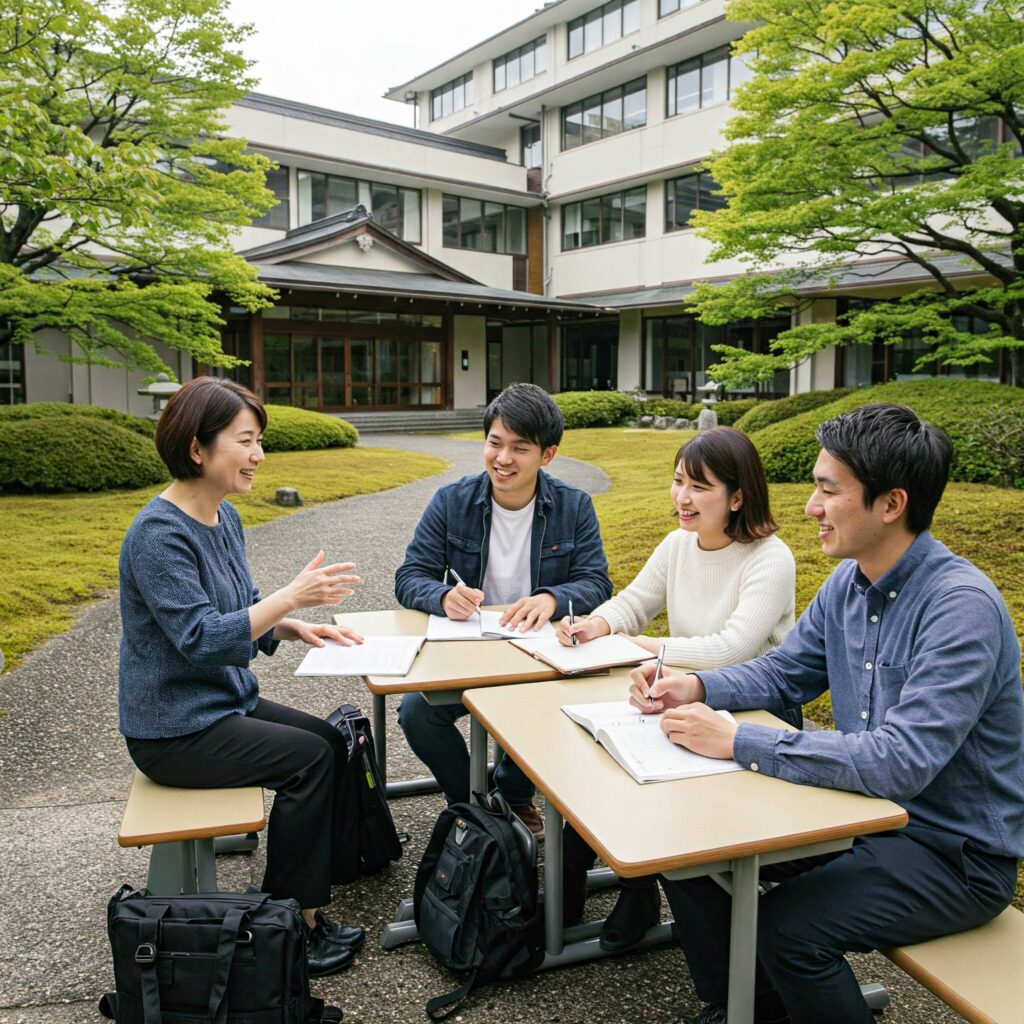Kyoto Komore International Institute is pioneering a comprehensive sustainability agenda that integrates cutting-edge environmental practices with academic excellence across its high school, undergraduate, and postgraduate programmes. This initiative reflects the Institute’s commitment to embedding the United Nations Sustainable Development Goals (SDGs) into every facet of its operations, research, and teaching, positioning it as a leader in Japan’s higher education sustainability movement.
Embedding Sustainability into Institutional Strategy
Recognising the critical role of universities in addressing global environmental challenges, Kyoto Komore International Institute has adopted a holistic sustainability framework that spans governance, campus infrastructure, curriculum design, and community engagement. The Institute’s Sustainability Office, established in late 2024, coordinates cross-departmental efforts to ensure sustainability principles guide decision-making and resource allocation.
This office has introduced a Sustainability Action Plan with clear, measurable targets aligned with international best practices. The plan focuses on carbon neutrality, waste reduction, water conservation, and biodiversity enhancement, with a goal to achieve net-zero carbon emissions across all campuses by 2030. This ambitious target is supported by strategic partnerships with environmental organisations and technology providers specialising in renewable energy and sustainable building design.
Innovative Campus as a Living Laboratory
The Institute’s campuses serve as dynamic living laboratories where sustainability concepts are not only taught but actively practised. Recent investments include the installation of solar photovoltaic systems, energy-efficient LED lighting, and smart building management systems that optimise energy use in real time. Water recycling initiatives and green roofs contribute to reducing the ecological footprint while enhancing campus biodiversity.
Students and faculty participate in ongoing monitoring of environmental indicators via digital dashboards, fostering a culture of transparency and collective responsibility. For example, the high school science curriculum incorporates hands-on projects analysing campus energy consumption patterns, empowering younger students to contribute meaningfully to sustainability goals.
Curriculum Integration and Interdisciplinary Research
Kyoto Komore International Institute has embedded sustainability deeply into its academic programmes. From high school through to postgraduate levels, courses now feature modules on climate science, environmental policy, sustainable economics, and ethical leadership. This interdisciplinary approach equips students with the knowledge and critical thinking skills necessary to tackle complex sustainability challenges.
At the undergraduate level, students engage in project-based learning that addresses real-world issues such as urban resilience, renewable energy systems, and sustainable agriculture. Postgraduate research centres focus on innovative solutions aligned with SDGs, including carbon capture technologies, circular economy models, and social equity in environmental justice.
Faculty members collaborate across disciplines and with external partners to produce impactful research that informs policy and practice. The Institute has recently launched a Sustainability Research Hub that facilitates these collaborations, hosts seminars, and disseminates findings to wider academic and public audiences.
Student Empowerment and Community Engagement
The Institute actively cultivates student leadership in sustainability through clubs, volunteer programmes, and partnerships with local governments and NGOs. Students lead initiatives such as zero-waste campaigns, urban gardening projects, and environmental education workshops for neighbouring communities.
A notable example is the “Green Ambassadors” programme, where student representatives liaise with campus administrators to propose and implement sustainability improvements. This participatory model fosters agency and practical skills, preparing students to be proactive agents of change beyond their academic careers.
Measuring Impact and Continuous Improvement
Kyoto Komore International Institute employs rigorous metrics to evaluate progress towards its sustainability goals. Annual sustainability reports provide transparent data on energy use, waste diversion rates, greenhouse gas emissions, and social impact indicators. These reports inform iterative refinements to policies and programmes.
The Institute also benchmarks its performance against global sustainability rankings and participates in international forums, sharing best practices and learning from peer institutions. This global engagement ensures that Kyoto Komore remains at the forefront of sustainability innovation in education.
Leadership in Japan’s Sustainability Education Landscape
As Japan intensifies efforts to meet its climate commitments and promote sustainable development, Kyoto Komore International Institute exemplifies how educational institutions can lead transformative change. Its integrated approach—combining operational excellence, curricular innovation, and community involvement—serves as a model for other universities and schools seeking to embed sustainability at their core.
By fostering an environment where sustainability is a lived value, Kyoto Komore International Institute is preparing its students to become knowledgeable, ethical leaders capable of addressing the pressing environmental and social challenges of the 21st century.

Leave a Reply